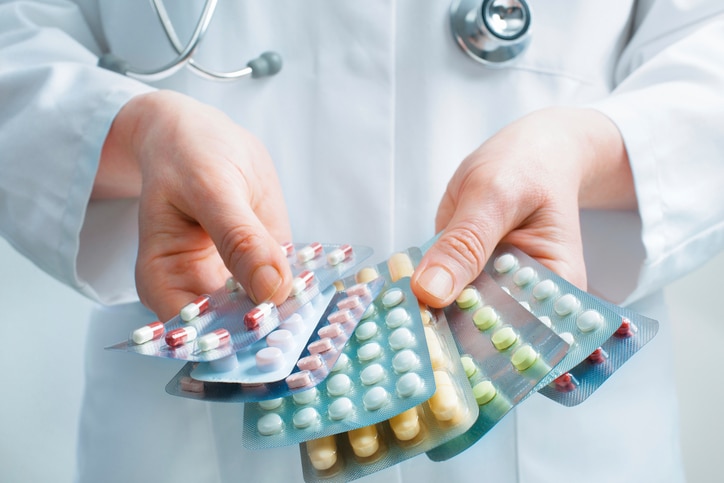First Big Pharma sells us rat poison disguised as a blood thinner and says it won’t harm our bodies. Now they’ve topped even that.
Since the 1950s, doctors have prescribed warfarin, marketed as Coumadin, to control atrial fibrillation (AF).1
AF is a type of irregular heartbeat. It affects about 3 million Americans. It can lead to blood clots in the heart. The clots can break free and trigger a stroke. Warfarin is supposed to keep blood thin to prevent the clots from occurring.
More than 2 million Americans take warfarin. But it has been linked to internal bleeding, stomach ulcers, kidney failure, dementia, and chronic cough. It is the leading cause of emergency room visits by the elderly.
It is notoriously difficult to fine-tune the dosage of warfarin. Too much, and you suffer internal bleeding. Not enough, and you get blood clots. The right dose varies widely from one patient to the next. So patients on warfarin must be closely monitored.
Recommended for You: Blood Pressure BREAKTHROUGH! Tiny seed lowers systolic pressure by a whopping 15 points
Canadian researchers found that people who ate up to 30 grams of this seed each day lowered their systolic pressure by an average of fifteen points and diastolic dropped seven points.
Even the Mayo Clinic lists it as an alternative that “may lower blood pressure.”
But our research indicates there may be a way to get even better results than the study. For details, go HERE.
Another disturbing fact… Warfarin was first sold commercially in 1952. But it wasn’t used as a drug. It was sold as a rat poison.2
In 2010, doctors turned to two new drugs, Xarelto and Pradaxa, to control AF. They were hailed as a big advancement in safety.
Unlike warfarin, which reduces clotting by inhibiting the action of vitamin K in your bloodstream, these two drugs impede a substance in your body called Factor Xa, which also can create blood clots.
Xarelto and Pradaxa are in a class of drugs called direct-acting oral anticoagulants (DOACs). Dosing is easier. It doesn’t have to be personalized for each patient like warfarin.3
But now, more than seven years after they hit the market, we are finding out that DOACs carry grave risks. A large study shows that Xarelto and Pradaxa double the risk a patient will have a heart attack.
Researchers at Maastricht University Medical Center in the Netherlands studied six years of data from more than 30,000 patients with AF. Over 1,200 subjects were recent users of Xarelto and Pradaxa.
They found that patients on these two drugs were more than twice as likely to have a heart attack as those on warfarin.4
The study was published in the British Journal of Clinical Pharmacology.5
Despite the disturbing findings, doctors and drug companies continue to push Xarelto and Pradaxa.
Why? Perhaps it’s because there are no generic versions of the two medications… So they cost about 70 times more than warfarin. But then again, rat poison is cheap.6
6 Natural Blood Thinners
Atrial fibrillation is a serious condition. Talk to your doctor about the medication you are taking for it. Discuss treating your AF with natural remedies that have no side effects. You may be able to reduce—or even eliminate—your prescription blood thinner.
Here are six natural substances that reduce blood clotting:
- Turmeric: This is a spice commonly used in Indian cooking. It is a powerful anti-inflammatory. Take a 500 mg supplement three times a day.
- Cayenne pepper: In supplement form, it is a fast-acting blood thinner. Take 450 mg three times a day with food.
- Omega-3 fatty acids: Great food sources include wild-caught salmon, anchovies, albacore tuna, herring, walnuts, olive and flax seed oils, and pumpkin seeds. Eat at least one of these twice a week… Or take an omega-3 supplement as directed by the label.
- Bromelain: This enzyme is found in pineapples. Take a 400 mg supplement three times a day on an empty stomach.
- Water: Yes, plain water. It’s one of nature’s most effective blood thinners. Drink ½ ounce of water for every pound of your body weight each day. So a 180-pound man would need 90 ounces or about three quarts of water a day. People who eat a lot of fruits and vegetables may need less.
- Garlic: Raw garlic is preferable. But it may be too pungent for many people. Instead, try a supplement. Follow the dosing directions on the label.
If you’re worried about your heart health, there’s something else you should know… There are natural, safe, and effective ways to protect your heart.
Our researchers pinpointed one substance that can help decrease heart risk by up to 15% in just three months. If you want to protect your heart, I urge you to learn more now.
Like this Article? Forward this article here or Share on Facebook.
References:
1https://www.ncbi.nlm.nih.gov/pmc/articles/PMC1885167/
2https://en.wikipedia.org/wiki/Warfarin
3http://www.everydayhealth.com/columns/jared-bunch-rhythm-of-life/i-have-atrial-fibrillation-which-new-blood-thinner-should-i-take/
4http://onlinelibrary.wiley.com/doi/10.1111/bcp.13264/full
5https://www.healthcanal.com/blood-heart-circulation/heart-disease/236193-blood-thinners-may-increase-heart-attack-risk.html
6https://en.wikipedia.org/wiki/Rivaroxaban

